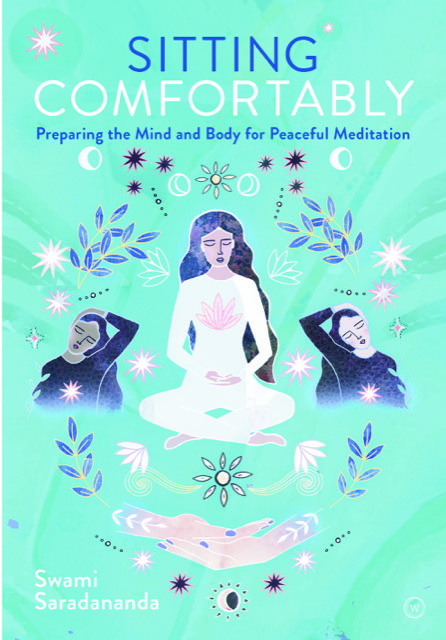If you are serious about developing a regular meditation practice, it is helpful to reflect on how you could live more simply, without a lot of the current unnecessary distractions.
Of course, you need the basics to live safely and healthily. But, you may find that a good portion of your life revolves around earning enough money to pay for things that you really don’t need.
Begin to notice the types of activities that often tend to disturb your sense of ease and tranquillity. For example, you might like to look at the effects that overstimulating foods and drink have on your body and mind, or violent films, or your choice of reading material.
Here are some suggestions of simple changes that you can make to your life that will greatly enhance your ability to meditate.
1. The Value of Decluttering.
The condition of your home and workspace tends to reflect the state of your mind, which has a direct connection to the quality of your health and your ability to meditate. It is therefore advised to minimize physical clutter in both your home and work environments. Reducing the number of physical items surrounding you will free your mind and enable you to focus more effectively.
2. Multitasking is an Illusion.
Although multitasking is often championed, it can actually decrease your efficiency, as your mind can really only focus on one thing at a time. The average mind jumps so fast that you tend to have the impression that you are working on several things simultaneously but, in reality, by trying to multitask you are simply using precious energy jumping back and forth between things. Training your mind to hold on to any one activity, or point of focus, for longer will radically enhance your experience in meditation as well as greatly increase your efficiency in life.
3. Voluntary Silence.
Voluntary silence, known as mouna in Sanskrit, is a powerful technique that can be used to help you conserve, purify, and focus your mind. Many would-be meditators try to observe verbal silence for at least one hour a day—or, perhaps, when circumstances allow, spend one day a week in total silence.
This doesn’t have to be hard to achieve. You could do it while going for a walk or jog in nature, practising some yoga, or doing some simple manual work, such as gardening or chopping vegetables.
The key is to do whatever your chosen activity is in silence, without listening to music or watching television. It is best to avoid any rapid exercise or anything that requires intellectual focus or internal verbalization, such as reading.
By decreasing your external noise you will begin to notice how busy your internal mental environment really is. In the beginning, various thoughts, old worries, and negative emotions might arise to try to get you to break your silence. But try to simply watch the thoughts and let them pass by as though they were bubbles that you let float up into the sky.
As previously mentioned, if you eat a meal in full silence at least once a week, you will probably notice that your digestion improves and your mind draws inward.
Mouna brings a state of increased mental awareness, helping you to silence tumultuous thoughts and emotions, and greatly enhancing your capacity to meditate as your mind becomes more peaceful.
4. Electronic Fasting (E-Fasting).
A practice that is gaining popularity among would-be meditators is “electronic fasting,” also known as “digital detox,” “digital Sabbath,” or “unplugging.” This involves voluntary abstention from electronic devices and services, including smartphones, internet browsing, and social media. The aim is to help you to reclaim and rebalance your life so that you are not held hostage to all such 24/7 distractions.
You may want to choose a specific day when you stay clear of the internet, turn off your phone, and watch no TV. This may be a weekly event or a monthly one. Although the electronic silence might increase your anxiety in the short term, it will enable you to focus on other activities and enhance your mental clarity in the long term.
Even if total abstinence at certain times is not feasible, it is a good idea to allow yourself to connect to electronic media only at specific times of the day. For example, it is best not to browse the internet or check your messages immediately before meditation. Some people prefer to have a daily electronic blackout period, such as from 8.00 p.m. to 8.00 a.m.
5. Less TV & Film Watching.
Throughout the day, your senses of sight and sound drain much of your mental energy in their ongoing quest to take in as many sensory impressions as possible. Decreasing the amount of time you spend on sensory indulgences, such as TV and other modes of mass media entertainment, can therefore help to free up your energy for other pursuits.
Television is, by its very nature, anti-mindful; it is meant as an escape from the present moment. Meditation, on the other hand, is not about escapism; instead, it enhances your ability to immerse yourself completely in the present moment.
With regular meditation practice, you will probably, therefore, find yourself less inclined to watch mindless fluff or gratuitous violence, as you will be more fully engaged in the moment-by-moment experience of real life.

This article is an excerpt from my upcoming book, Sitting Comfortably: Preparing the Mind and Body for Peaceful Meditation, out on June 8th. Pre-order it here.








Read 2 comments and reply